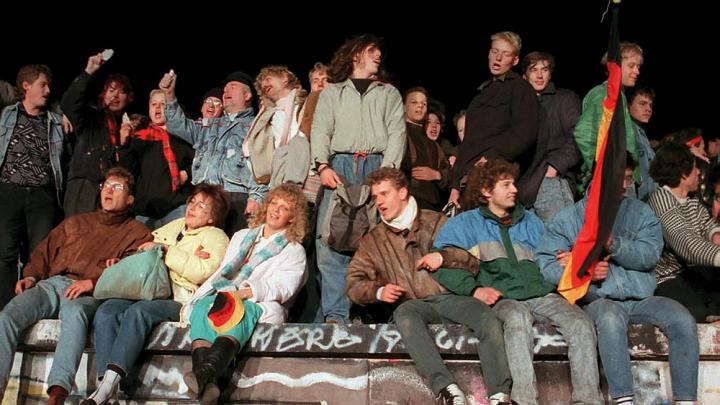The Efficiency Paradox: What Big Data Can’t Do, by Edward Tenner, JF ’72 (Knopf, $27.95). The author, a longtime contributor to these pages and now an independent scholar associated with the Smithsonian and Rutgers, reminds those agog about algorithms, AI, etc., that efficiency is “wonderful, until it isn’t.” Carrying the mania too far backfires (“even an excess of water can be lethal”), especially if good old-fashioned human judgment is overshadowed.
Metamorphosis: How to Transform Punishment in America, by Robert A. Ferguson ’64, J.D. ’68, Ph.D. ’74 (Yale, $35). The late, multi-talented Woodberry professor of law, literature, and criticism at Columbia looked beyond changes in sentencing, solitary confinement, and more to challenge the entire basis of the U.S. penal system. The argument seeks to pivot from retribution and humiliation toward reform and change—hence the resonant title, from Ovid.
When-government-worked department: The Fears of the Rich, The Needs of the Poor: My Years at the CDC, by William H. Foege, M.P.H. ’65, S.D. ’97 (Johns Hopkins, $24.95 paper). Narratives about public health refracted through the Centers for Disease Control, by its former director (who is not stained, like a recent successor, by trading tobacco stocks). In A Blueprint for War: FDR and the Hundred Days that Mobilized America, by Susan Dunn, Ph.D. ’73 (Yale, $27.50), the Massachusetts professor of humanities at Williams recounts how a masterly leader rallied the nation for strategic leadership of a world threatened by catastrophic war—without engaging in a single Twitter contest with the fascist opposition.
Not Enough: Human Rights in an Unequal World, by Samuel Moyn, J.D. ’01 (Harvard, $29.95). The author, professor of law and of history at Yale (and previously at Harvard), traces the origins of the notion of human rights—and its simultaneous decoupling from socioeconomic justice and equality in an age of ascendent neoliberal capitalism. An important argument about how “Human rights became our highest ideals only as material hierarchy…worsened”—an “immense reversal” in “an unequal world.”
Beethoven’s Symphony No. 9, by Alexander Rehding, Peabody professor of music (Oxford, $14.95 paper). Forget the sedate title. This reinterpretation for a new millennium takes off from Norwegian conceptual artist Leif Inge (who knew?) and his 9 Beet Stretch, and includes photos, inter alia, of flash mobs doing their thing.
From the wards: You Can Stop Humming Now, by Daniela J. Lamas ’03 (Little, Brown, $28). Exceptionally humane, and well-crafted, essays by an instructor in medicine and critical-care doctor at Brigham and Women’s Hospital—a medical reporter before training for her current career—who recounts how it feels when, for instance, “my patient told me that he was done” and set a course to die peacefully at home. In Indefinite Postponement (Pressed Wafer, $15, paper), psychiatrist John P. Williams ’90 presents, with commentary, the anonymous suicide-recovery diary of one of his adolescent patients. Haunting reading, published in the hope of heading off other suicides.
In Hype, by Nina Shapiro, M.D. ’91, with Kristin Loberg (St. Martin’s, $26.99), a UCLA surgeon draws on her training and her interactions with anxious patients (“informed” by the Internet and media accounts) to sort out the medical wheat from the considerable chaff among competing claims, miracle cures, and just plain rotten advice. From within biomedical science, Cancerland: A Medical Memoir, by David Scadden, Jordan professor of medicine and professor of stem cell and regenerative biology, with Michael D’Antonio (Thomas Dunne/St.Martin’s, $27.99), recounts doing the work of discovery during much of the era of the “war on cancer.” For a current battlefield report, see “Targeting Cancer,” page 35.
Universe in Creation, by Roy R. Gould, of the Harvard-Smithsonian Center for Astrophysics (Harvard, $24.95). A sweeping overview of how the universe came to be the way it is, by a gifted expositor. For example, recalling a childhood brush with morning glories, he writes, “We can at least fathom how a seed might create a living sculpture of flowers and leaves” (cells, DNA). But how did “the infant universe,” devoid of experience and structure, a “jumble of disorder and chaos,” come to organize and array itself—and create us?
Urban prospects. In Uneasy Peace (W.W. Norton, $26.95), Patrick Sharkey, Ph.D. ’07, professor and chair of sociology at New York University, thoroughly deconstructs the real causes of “great crime decline”—the transformation that, bloody-shirt political rhetoric to the contrary, has made cities so much safer and magnetic to so many—and dispels other myths about policing, its benefits (most often to the poor who are crime victims), and more. A landmark analysis. Building and Dwelling, by Richard Sennett, Ph.D. ’69 (Farrar, Straus and Giroux, $30), in a way sums up a lifetime of studying and thinking about cities—and again, why the great ones are great, in this era of humans’ most intense urbanization. The author now professes at the London School of Economics.

An unheralded role for Barbie, in intellectual-property litigation
Photograph by iStock
You Don’t Own Me, by Orly Lobel, S.J.D. ’06 (W.W. Norton, $27.95). Intellectual-property law made vivid, via an engaging narrative about the litigation surrounding, of all “people,” Barbie.
Calm Clarity, by Due Quach ’00 (Tarcher, $17 paper). A recovered management consultant and private-equity investor applies her business savvy to neuroscientifically informed ways to “rewire your brain for greater wisdom, fulfillment, and joy” (to adapt the subtitle), which she helps effect through a social enterprise with the same name as her book. On a less organizational basis, The Two Most Important Days, by Sanjiv Chopra, professor of medicine, and Gina Vild, associate dean for communications and external relations, Harvard Medical School (Thomas Dunne Books, $24.99), is a book on inspiration and inspired living (subtitled “How to Find Your Purpose—and Live a Happier, Healthier Life”)—a contribution to a popular genre by an atypical pair of authors.
A More Beautiful and Terrible History, by Jeanne Theoharis ’91 (Beacon Press, $27.95). A passionate reinterpretation of civil-rights history (“the endless misuses of Rosa Parks” jumps off the page), the “uses and misuses” to which it is put, by a distinguished professor of political science at Brooklyn College-CUNY. May We Forever Stand, by Imani Perry, J.D.-Ph.D. ’00 (University of North Carolina, $26), drills down deep into “Lift Every Voice and Sing,” the de facto black national anthem—ignorance of which in other quarters tells something about divisions among Americans. The author is Hughes-Rogers professor of African American studies at Princeton.
Law and Legitimacy in the Supreme Court, by Richard H. Fallon Jr., Story professor of law (Harvard, $39.95). An argument for good faith in constitutional interpretation, proceeding from elements that underlie “originalism” to the rationale for justices making refinements arising from the challenges presented by new cases. This work of jurisprudence and legal philosophy resonates in the era of highly politicized rulings and weaponized confirmation processes.
The Transformation of Title IX: Regulating Gender Equality in Education, by R. Shep Melnick ’73, Ph.D. ’80 (Brookings, $35.99 paper). How did a law aimed at gaining girls and women equal access to sports (and other programs) become the determinant of sexual-harassment and transgender-rights programs? The author, a Boston College political scientist, analyzes, and critiques, the evolution of “equal educational opportunity” against a backdrop of heated culture wars.








